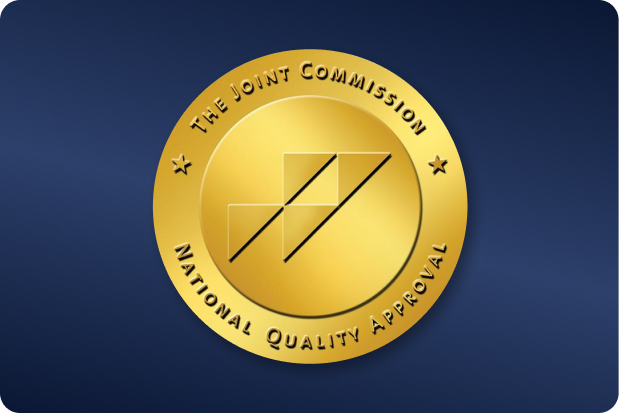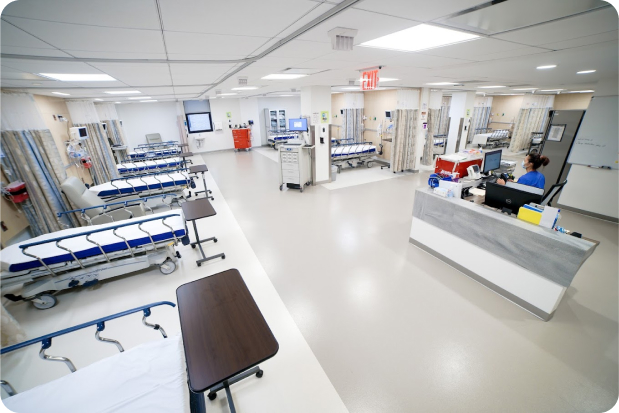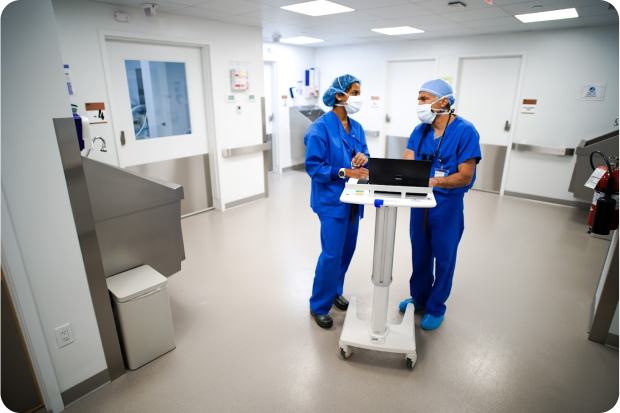 OUR LOCATIONS
Same-day Appointments Book OnlineCall to book 201.523.9590
OUR LOCATIONS
Same-day Appointments Book OnlineCall to book 201.523.9590
 OUR LOCATIONS
Same-day Appointments Book OnlineCall to book 201.523.9590
OUR LOCATIONS
Same-day Appointments Book OnlineCall to book 201.523.9590
Table of contents
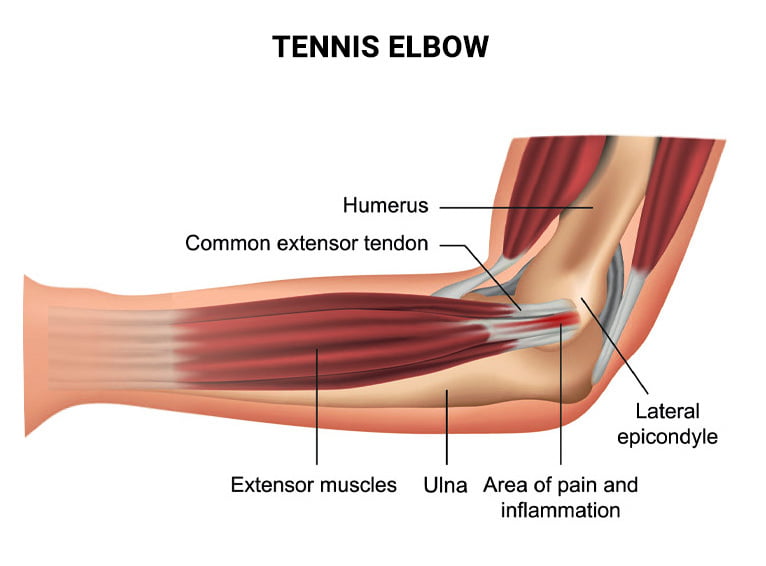
Tennis elbow, or lateral epicondylitis, is a common overuse injury affecting the tendons on the outer portion of the elbow. These tendons connect the forearm muscles to the lateral epicondyle, a bony prominence on the elbow.
Repetitive motions, such as gripping, lifting, or twisting, can cause small tears in the tendon, resulting in inflammation, pain, and weakness. Although it is called “tennis elbow,” anyone performing repeated arm movements, including painters, mechanics, and office workers, can develop this condition.
While both tennis elbow and golfer’s elbow involve tendon inflammation, they affect opposite sides of the elbow. Tennis elbow causes pain on the outer (lateral) side, while golfer’s elbow affects the inner (medial) side. The difference lies in which tendons are strained: tennis elbow impacts the tendons responsible for extending the wrist and fingers, whereas golfer’s elbow affects those that flex the wrist. Understanding this distinction is key to providing an accurate diagnosis and treatment tailored to your specific sports injury.
Tennis elbow develops from repetitive stress and overuse of the forearm muscles, which leads to small tears in the tendon attached to the outer elbow. Common causes include sports that require gripping or swinging motions, such as tennis, pickleball, or racquetball. However, it’s also frequently seen in professions and hobbies involving repeated wrist extension, such as typing, carpentry, or painting. Poor technique or using improper equipment can also increase the risk. Early intervention with shoulder, elbow, hand & wrist pain treatment can prevent chronic issues and restore function.
I was so happy to discover an effective treatment for elbow pain that didn't need surgery or prolonged bed rest. The Spine and Rehab find and address the source of the pain within a few weeks. I've finally discovered an effective treatment for my elbow pain!
Amara N. ★★★★★Treatment from Dr. Chu was outstanding. I was able to resume playing golf after suffering from persistent elbow pain for several months. Additionally, his crew was friendly and very supportive. I would unquestionably recommend Dr. Chu to anyone seeking for pain relief.
Kylie H.Typical symptoms of tennis elbow include:
If left untreated, tennis elbow pain can become chronic and interfere with work, sports, or daily routines.
At The Spine & Rehab Group, our tennis elbow specialist NYC team conducts a thorough evaluation. This includes reviewing your medical history, performing a physical examination, and using imaging when needed. During your assessment, your doctor may ask you to extend your wrist or resist movement to pinpoint pain. X-rays, MRI, or ultrasound may also be ordered to rule out fractures, arthritis, or nerve compression. A precise diagnosis allows us to provide targeted tennis elbow treatment in New Jersey and NYC.
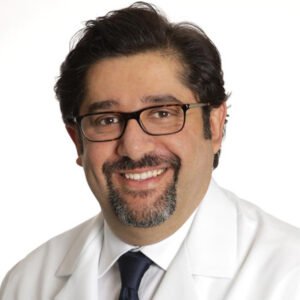 Amr Hosny, MD, MBA, FASA
Book Now
Amr Hosny, MD, MBA, FASA
Book Now
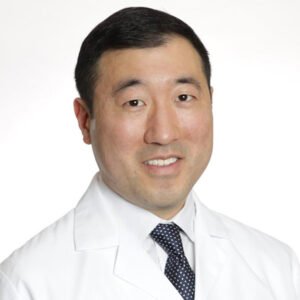 David Chu, MD, FAAPMR
Book Now
David Chu, MD, FAAPMR
Book Now
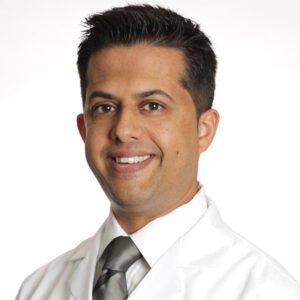 Vivek Mehta, MD, FAAPMR
Book Now
Vivek Mehta, MD, FAAPMR
Book Now
 Deepali Gupta, MD, DABA, DABPM
Book Now
Deepali Gupta, MD, DABA, DABPM
Book Now


Our approach to tennis elbow treatment, guided by highly trained doctors and physical therapists, focuses on relieving pain, improving mobility, and preventing recurrence.
Treatment options may include:
In rare cases where non-surgical care is insufficient, minimally invasive procedures may be considered to repair tendon damage and restore elbow function.
Recovery depends on severity and adherence to your treatment plan. Most patients notice gradual improvement over several weeks with consistent therapy, including specialized tennis elbow exercises.
To prevent recurrence:
Our care team monitors your progress and adjusts your treatment to ensure long-term relief, restored strength, and full elbow function.
Don’t let tennis elbow limit your daily activities or quality of life. The Spine & Rehab Group offers expert care with comprehensive tennis elbow treatment in NYC and New Jersey, combining physical therapy, advanced injections, and guided recovery plans. Schedule your consultation today to start your path toward reduced pain and improved elbow function.
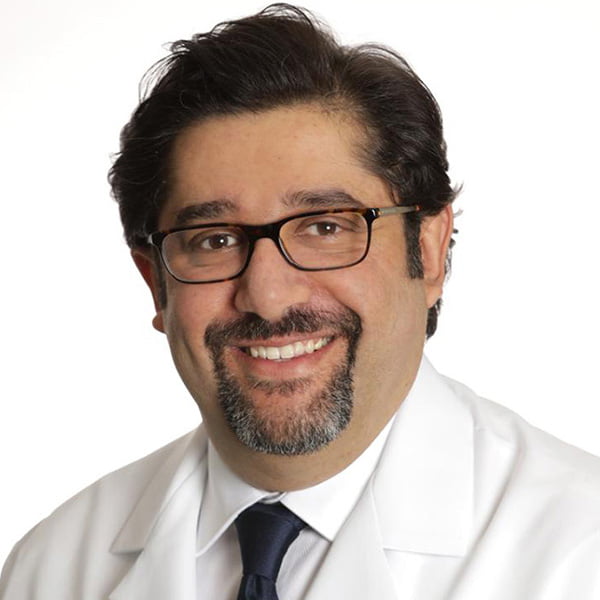
Dr. Hosny is a distinguished physician, educator, and healthcare leader with a commitment to advancing health equity and accessibility in the rapidly evolving landscape of modern healthcare. After completing his residency at St. Luke's Roosevelt Hospital Center, affiliated with Columbia University in New York City, he pursued an Interventional Spine Fellowship at Beth Israel Deaconess Medical Center, part of Harvard Medical School in Boston, MA.
Dr. Hosny has held prominent roles in academic medicine, including serving as an Associate Clinical Professor at New York Medical College and as the Interventional Spine Fellowship Program Director. These positions reflect his dedication to mentoring the next generation of healthcare professionals and advancing the field of interventional spine care.
More About Dr. HosnyThe Spine & Rehab Group
140 NJ-17,
Paramus, NJ 07652
(212) 242-8160
